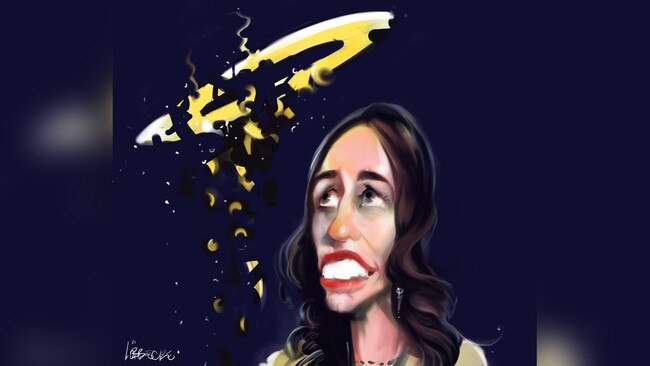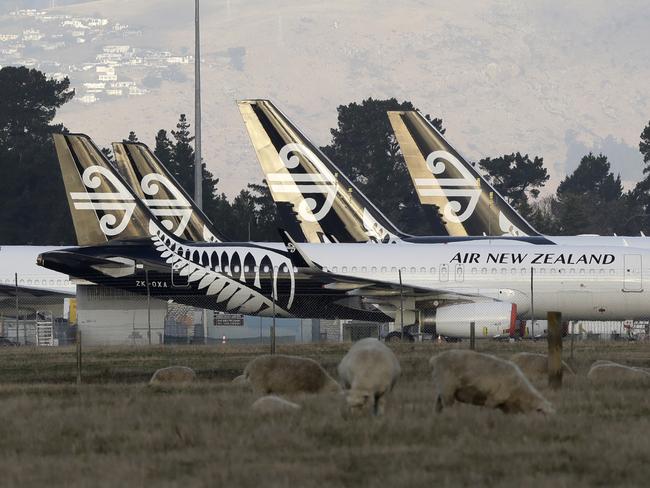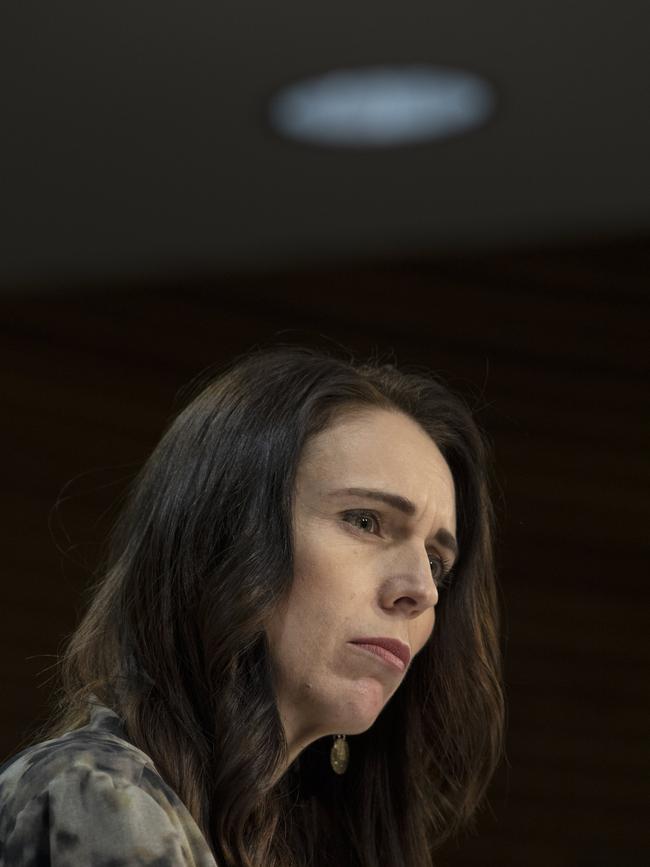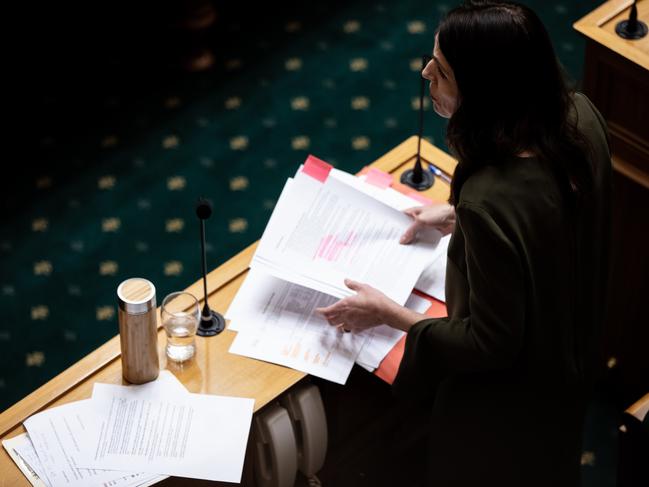Coronavirus: Flightless Kiwi economy will land with a painful thud
Jacinda Ardern might have popular support, but the facts are she is pushing the NZ economy off a cliff.

“Laughing in the face of seismic shakes, she has calmly steered her country in the face of a massacre, an eruption and a pandemic,” The Guardian cooed on Tuesday. Steering it into an economic abyss, perhaps.

New Zealand’s economy is in strife. Without major change, our constitutional cousin is in decline. Its public finances are in tatters, its biggest export, tourism, has been obliterated — Air New Zealand announced 4000 job losses this week — and New Zealand police now can enter people’s homes without a warrant.
“New Zealand is going backwards, falling behind the vast majority of our OECD partners in virtually every social and economic measure that matters,” said Roger Douglas, a former New Zealand Labour treasurer and the famed architect of Rogernomics.
New Zealand ranks fourth last in the OECD for labour productivity growth, and last for multi-factor productivity growth, according to economist Michael Reddell, based on OECD data. Health and education are gobbling up more of the budget as the population ages, with less and less to show for it.
MORE ADAM CREIGHTON: It’s all well and good for Palaszczuk on her $400K salary | AAA rating in doubt as debt soars | Once-hot property catches a chill | ‘Total lockdowns weren’t needed to save lives’ | While the elite savour serenity, costs mount | The real story behind the jobs data
The country’s Massey University reckons economic activity will tank 16 per cent in the second quarter, while government forecasts pencil in a 4.6 per cent decline this year ahead of an 8.2 per cent rebound in 2022.
“I doubt the economy will bounce back as the government hopes; and the Treasury forecasts, as bad as they are, will prove optimistic,” former NZ Treasury secretary Graham Scott said.
In one year, New Zealand has blown 30 years of hard-fought fiscal rectitude. Its public debt will explode from the equivalent of 19 per cent of gross domestic product last year to 54 per cent by 2022, on the government’s own figures.

Scott said expanding the deficit, expected to blow out to 10 per cent this year, was the right thing to do. “But looking further out, comparisons with other countries, such as the US and UK, are no basis to justify our large debt ratios; we’re a small, open economy with vulnerable export industries,” he said, noting the share of exports in GDP had been falling steadily for nine years.
That makes Labour’s ban on oil and gas exploration all the more bizarre. With 0.3 per cent of global GDP, New Zealand can only shoot itself in the foot by shunning fossil fuels. The Prime Minister and Finance Minister, who have not worked in the private sector, spruik the totems of modern left governments — renewable energy, trees, higher tax, equality — but without much to show for it. Plans for a billion trees and 100,000 houses have come close to almost naught, and a capital-gains tax was dumped. Labour made a song and dance about reducing child poverty too, but on six out of nine measures tracked by Statistics New Zealand it is unchanged or worse since 2017, including the share of children living in “material hardship”, which has risen to 13.4 per cent.
It’s hard to see how shifting to a four-day working week, the Prime Minister’s latest reform idea, will fix the country’s problems.
“The real problem with the Ardern government is they have no idea whatsoever apart from how to throw money at things,” Douglas told The Australian. The targeted “investment” approach to welfare pioneered when previous prime minister Bill English was treasurer has been junked in favour of open slather. “Our $12bn wage subsidy, for instance; about a third was a donation to people who don’t need it,” he said, explaining how well-off lawyers and accountants had obtained the payments.
New Zealand’s international investment position was negative $171bn at the end of last year, more than half its GDP. “To keep international investors’ trust, we must remain squeaky clean in our fundamental economic institutions,” New Zealand Initiative chief executive Oliver Hartwich said. “Even Mexico, Nigeria and Venezuela are not as indebted to the rest of the world as New Zealand.”

The nation’s draconian response to the coronavirus was questionable, given it is an island with a massive moat and a small population spread over an area the size of Italy. Despite those obvious advantages, the stringency of its lockdown was higher than practically any other country, according to Oxford University’s Blavatnik School of Government. Deaths per million were the same as Australia’s — just four.
In any case, it wasn’t outsized compassion that drove the lockdown sledgehammer but the brutal reality of an underfunded health system. With about 140 intensive care unit beds and few ventilators — far fewer than Australia per capita — it was woefully underprepared. Ardern is more popular than ever, and by all accounts is a good person and a great communicator. But if a COVID-19 vaccine remains elusive, New Zealanders may come to question her wisdom as they fall further down the global pecking order. Without economic growth, there won’t be money for more ICU beds.
If we want to fete other countries for their response to the virus, how about Japan? It didn’t smash the civil liberties of its people for weeks yet it managed to keep deaths very low. Eschewing big-government solutions, Shinzo Abe would have had to “transition” to get the left’s attention.


No national leader has been as feted as Jacinda Ardern during this pandemic. Young and progressive, New Zealand’s Prime Minister was popular before the crisis. Since she imposed the favoured pandemic solution of the left — a hard lockdown, shutting practically all business and no socialising with anyone outside your home — her star has only risen.